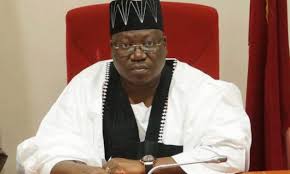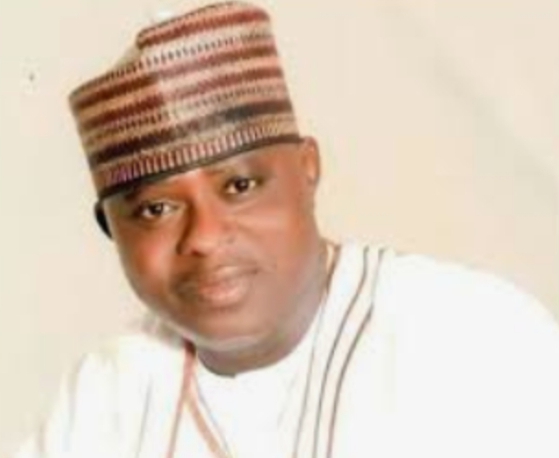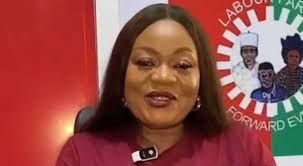The Senate President Ahmad Lawn has urged Nigerians not to lose faith in the country and its democratic institutions as current challenges will be overcome and become mere footnotes in the nation’s glorious national history.
In his new year message he personally signed and made available to the Senate press Corps on Friday he said the Year 2021 was challenging for people all over the world however he said it is praiseworthy that beyond the challenges, the rays of a bright future from the new year are visible
“As your elected representatives, our new year pledge is to continue to pursue our common desire of a just, peaceful and prosperous country.

“We promise to continue to discharge this responsibility without fear or malice, confident that by working in harmony, Nigerians will build the great country that is their abiding dream and manifest destiny.
“Without a doubt, insecurity is today one of our biggest challenges. However, I can attest that the government is resolutely addressing these challenges.
“As a critical contribution to that effort, the National Assembly has appropriated more funds in the 2022 budget to enhance the operational capabilities of our security agencies.
According to him, the ninth National Assembly remains focused adding that it will never be distracted from the implementation of its Legislative Agenda as they had spelt out following our inauguration in 2019.
“Within the context of that Agenda, we have passed many critical bills and have many more to roll out in the new year.
“At the beginning of 2021, we made specific promises to the Nigerian people with respect to our legislative focus. We are proud that we have kept those promises.
“For instance, breaking the jinx of the Petroleum Industry Bill(PIB), which had defied passage for about two decades, was high on our agenda in 2021.
“With the cooperation of the Executive and the support of the key stakeholders, we were able to break the jinx. We passed the bill and got it signed into law in 2021.
“This piece of legislation will significantly impact the Nigerian economy and propel a significant turn around in our oil and gas sector.
“It was with the same spirit of patriotism that we handled the Electoral Act amendment bill. We believe that sustainable democratic governance requires a transparent and credible electoral process.”
Lawan indicated that following the decision of President Muhammadu Buhari to withhold assent to the bill, they will make further consultations on the issues the president raised when they resumed in January.
We shall find a way forward on this critical legislation in the new year. We are determined to deliver an Electoral Act that stands the test of time in safeguarding democracy and the electoral process in Nigeria.
“We are also looking forward to receiving the report of our Committee on the Review of the 1999 Constitution upon our resumption from recess.
“We believe that the outcome of this very important exercise will promote unity, stability and peaceful coexistence in our country.
The Electoral Act amendment bill and review of the 1999 constitution he said will be topmost on their agenda when they reconvene for Legislative business in the new year.
“Upon our inauguration in 2019, the ninth National Assembly had promised to reset the national budget calendar to January to December cycle, to make our fiscal system predictable and consistent with international best practice.
“We have since 2019 passed the national yearly budget every December to enable the President sign it into law before the new year. In consistent with this, on Friday 31st December, 2021, we witnessed the signing into law by the President, the 2022 Appropriation Bill.”
He explained that the timely passage of the budget enhances the performance of the economy and specifically aided the recent quick recovery from recession.
“We are determined to sustain this trajectory to act as an impetus to our economic planning and projection.
“The much that we have been able to accomplish this far can be attributed to the commitment and dedication of my fellow Distinguished colleagues and Honourable members and the prevailing atmosphere of cordiality between the National Assembly and the Executive.
“We intend to sustain and even improve on this in the new year and beyond.”
He appealed for continued understanding and support of all Nigerians for the government at all levels.
“As your legislators at the federal level, we will continue in the true spirit of our mantra to “work for Nigeria.”
I congratulate fellow Nigerians everywhere as we cross over from 2021 into a happy and prosperous 2022.
“I join you in thanking the Almighty God for His mercy that made the crossover possible for us as individuals and as a nation.




